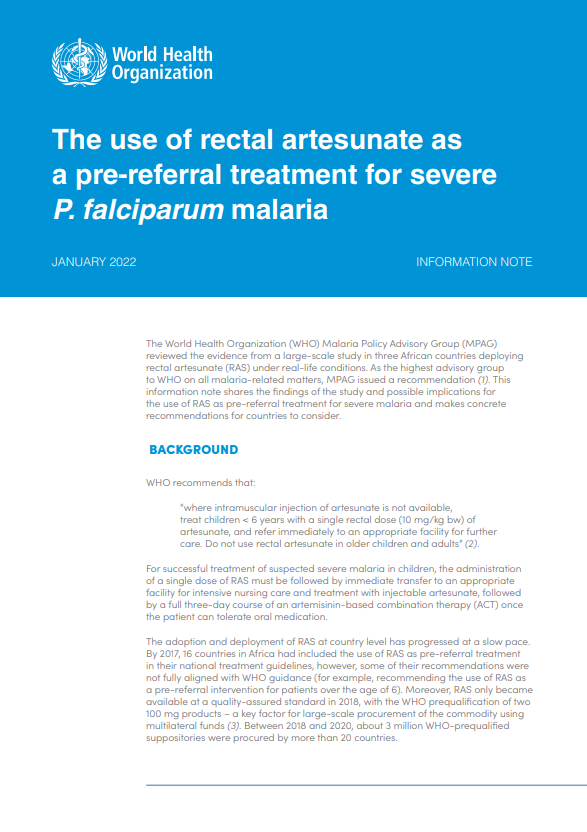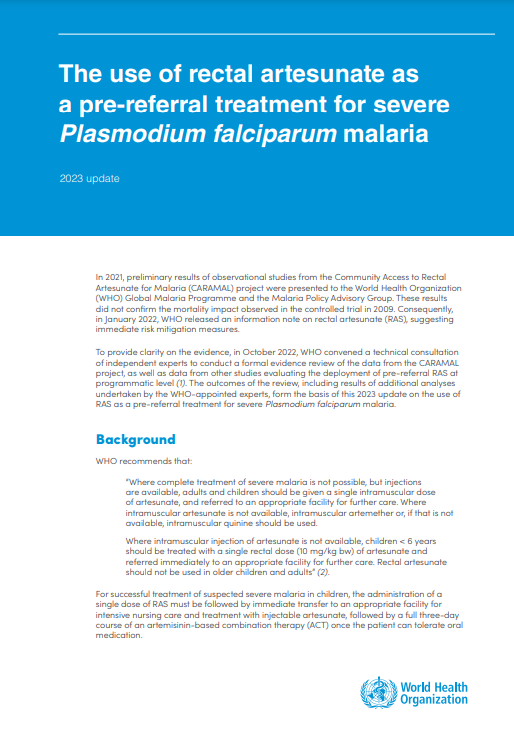Last Updated: 30/05/2025
SEvere MAlaria treatment with rectal artesunate and Artemisinin-based combination Therapy [in remote settings] (SEMA ReACT)
Objectives
The proposed project is an observational, non-inferiority study in Zambia and DRC. Community Health Care Workers will identify/diagnose, treat and follow up patients with (severe) malaria as part of integrated community case management. Mainly, This project will compare the efficacy of a treatment regimen consisting of pre-referral RAS, then post-referral injectable artesunate, followed by three days of ACT versus a regimen consisting of RAS alone followed by three days of ACT in remote areas.
Annually, almost 500,000 children under 5 years die from malaria in Africa. Timely access to effective antimalarial therapies is life saving as treatment with pre-referral rectal artesunate (RAS), followed by injectable artesunate and 3 days treatment with ACTs leads to an observed 96% reduction in mortality. Though recommended by the WHO for years, RAS deployment is very limited. The full treatment paradigm is not always feasible when access to primary healthcare facilities is limited due to lack of transport, non-availability of services, and cost. Rollout has recently been paused as outcomes data is incomplete in these contexts making the development of best practice recommendations challenging. Hence the relevance of the proposed study. This project will compare recurrence rate between the two regimens at Day 28, the number of lives saved, the risk of generating drug resistance. The project will also assess and mitigate operational and institutional facilitators and barriers in all stakeholders (patients, caregivers, health care providers, regulators, malaria experts) and recommend sustainable policies for this remote context. This generated evidence will support policy development and implementation. The proposed consortium brings together vital experience in the rollout and deployment of rectal artesunate, study design and execution, social science, data collection and management, stakeholder engagement and translation of research results into clinical practice.
Apr 2023 — Mar 2027
$4.31M

